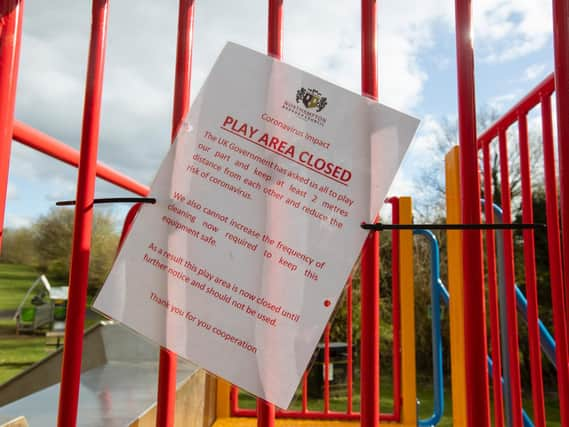What does 'stay alert' mean? Not many people know...and social distancing is as important as ever


Across Northamptonshire, since the outbreak of Covid-19, there has been an extraordinary, co-ordinated response from voluntary and community groups and charities, public health and the Northamptonshire Emergency Planning Team.
These organisations and services have ensured that residents who have had to self isolate or shield themselves have access to shopping services; that vulnerable residents and families on a low income have food aid; the homeless have access to temporary accommodation; that there is mental health support and advice available by phone and online; that children and young people are provided with activities and learning; and that isolated residents receive care packages.
Advertisement
Hide AdAdvertisement
Hide AdThese organisations and groups take careful measures to provide these services whilst adhering to public health guidance, including social distancing to ensure they help people, but also keep them safe and well.
However, over the bank holiday it became clear to me that social distancing is not always being taken seriously enough by the general public.
This is a very likely response to the mixed messaging from government where the Covid-19 public health slogan ‘stay home’ shifted to ‘stay alert’ and we have seen key political figures break lockdown regulations which have been put in place to protect our safety and help tackle the pandemic.
Despite the denials, I believe these breaking of the rules means around 14,000 people could now have a case in which to contest the fines they have received from the police during lockdown.
Advertisement
Hide AdAdvertisement
Hide AdThe rules apply to all of us and there should be no exceptions just because someone is in a position of privilege.
Social distancing as a measure will not stop the virus in it tracks, it is a measure to simply slow down the spread of the virus.
As the NHS website clearly states, this is all about avoiding close contact with people when possible which means staying at home when you can and only going out if you need to shop for food and essentials; go to work because you are unable to work from home; take daily exercise; or for medical purposes.
Easing restrictions on lockdown still means that social distancing should be taken very seriously indeed and the government’s messaging needs to be clear if we are to avoid a second wave of the pandemic in the near future.
Advertisement
Hide AdAdvertisement
Hide AdMost importantly this is also about reducing pressure on our health and medical services in their response not just to those patients with Covid-19 but to enable them to continue with their ongoing essential health work.
Scotland’s First Minister, Nicola Sturgeon, has been very clear about sticking with the public health message of ‘stay home’ and so have Northern Ireland and Wales.
In a press briefing she clearly stated that she didn’t know what ‘stay alert’ meant and I don’t think many of us do.
The ambiguous new public health message was then followed with a several-page explanation to help alleviate confusion. If you need to explain, then the messaging hasn’t worked.
Advertisement
Hide AdAdvertisement
Hide AdAdding to this is the plethora of ridiculous conspiracy theories that have been circulating on social media speculating that the pandemic has been deliberately manufactured to curtail people’s freedoms.
As the World Health Organisation (WHO) states, if you want to find out accurate information about Covid-19 then check the information from your public health authorities (@NorthantsPH) or from WHO itself (www.who.int/).
The impact and pressure to cope with this crisis on local public health services and the voluntary and community sector means we must do everything to reduce the possibility of a second wave of the pandemic. By not taking socially distancing seriously enough, we are only delaying the inevitable.